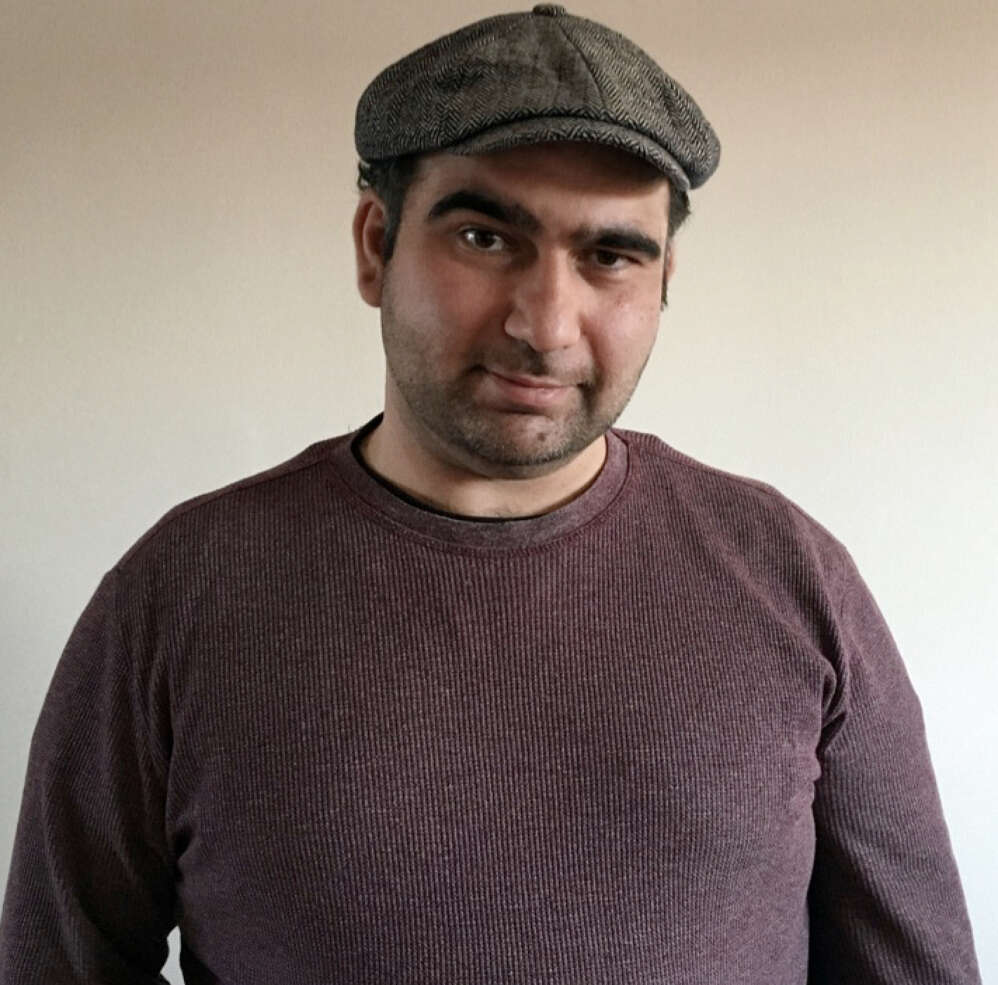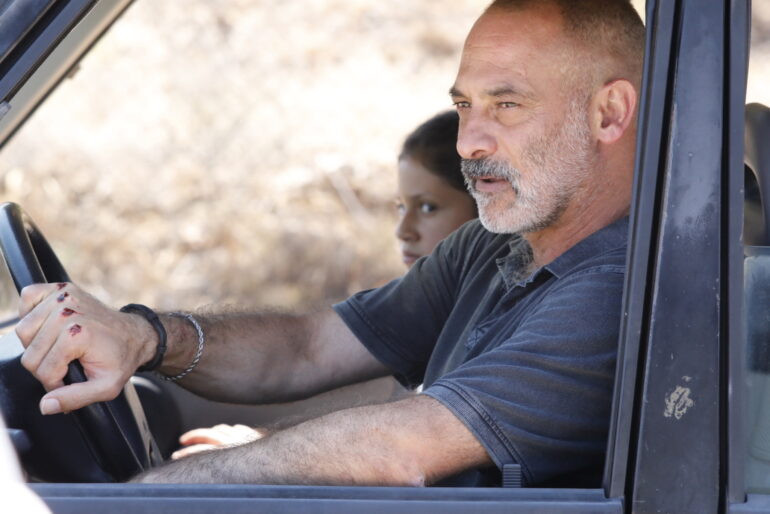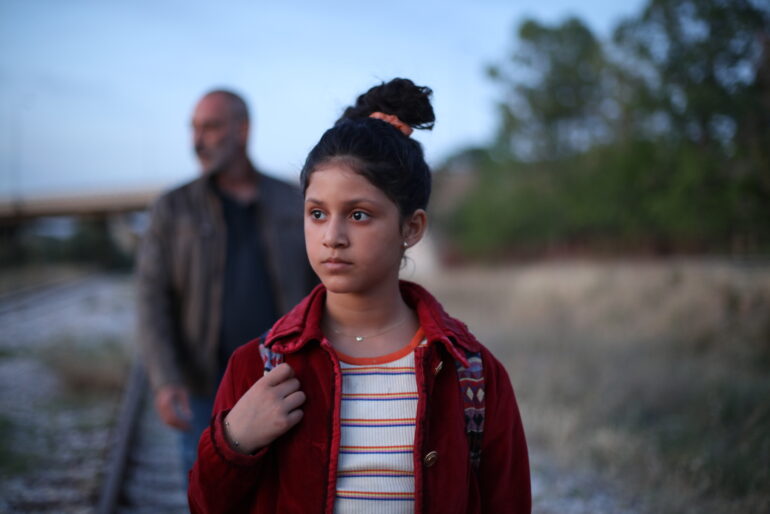
Director Abbe Hassan speaks about Exodus, Göteborg Film Festival’s opening film
Director Abbe Hassan speaks about Exodus, Göteborg Film Festival’s opening film
Exodus produced by B-Reel Films, is having its world premiere Friday January 27 at the Göteborg Film Festival, where it is competing for Best Nordic Film.
Abe Hassan is a seasoned director of commercials and producer of the critically acclaimed feature A Hustler’s Diary.
He co-wrote with Kristofer Cras the short films Nattliga monologer, Cedra, and Men, before turning to his feature-length debut Exodus,
also co-written with Cras.
The film centres on the professional smuggler Sam (40), who reluctantly saves the refugee girl Amal (12) whose family has gone missing in the Syrian war. The two set on a journey from the Mediterranean shores, across Europe to Sweden, as Amal believes this is where she will find her family. An unexpected friendship develops between the unlikely duo.
The film was produced by Mattias Nohrborg, Anna-Klara Carlsten and Olle Wirenhed for B-Reel Films, in co-production with Film I Väst, SVT, support from Nordisk Film & TV Fond.
Following its world launch in competition in Göteborg, the drama will open nationwide in Sweden March 10, 2023. LevelK handles sales.
We spoke to Hassan ahead of the film’s world premiere.
Firstly what does it mean for you to open Göteborg, and notably under the festival’s overarching theme of ‘homecoming’?
Abbe Hassan: It’s a tremendous honour. Göteborg is one of the few festivals where you can select any movie in the programme, and it’s almost always good! So I’ve always dreamed of having a movie there, but never of opening the festival!
With this year’s theme, it also makes sense, and in the film we see the main character Amal arriving in Gothenburg. In a way, it feels like a circle, now closing.
This story I believe is very close to your heart. Could you tell us about your own experience of having to flee war-torn Lebanon for Sweden as a child?
AH: Yes the movie is inspired by my own experience of leaving Beirut in the late 1980s with my family. It was a complex conflict, a civil war that got totally out of hand. I did part of the journey on my own. As a child, you have vague memories; you don’t know if it’s reality or not, especially during war. I have fragments of dreams and memories, like hiding from things, trying to survive. In my family, we’ve never openly spoken about the war. In Sweden, we were supposed to live a happy life and not to question the past.
Then in 2014, when we were faced with the refugee crisis in Sweden, I felt I had to do something, and a flow of memories hit me like lightening. I went back to my parents and said “There is no escape. Tell me what really happened?” The parts that I keep remembering is the warmth from people who helped us. For instance, when I got separated from my family, I was helped by a mum with her kids who took care of me until my parents found me again. Those bits of memories were the starting points for the script.
How did you write the script with Kristoffer Cras, and creating a fictitious story out of these painful and emotional personal memories?
AH: I have known Kristoffer for a while and have I always admired his work. I knew he could be honest with me, helping me ‘kill my darlings’ when needed. Then he started to bring in a lot of his own emotions. He added tremendously to the script, so in a way it is our movie.
The unlikely friendship between Sam and Amal gives a totally new tone to the usual story of human trafficking and migration. Could you take us through the writing process? Why did you choose to tell the story from that particular angle and did you do much research as well?
AH: Yes I did a lot of research, spoke to a lot of refugees who came to Sweden. I was surprised to discover that many of them had long conversations with smugglers. I spoke to one of the smugglers in Turkey. I could really tell that he was actually a good guy-a family man. He himself had been asked to marry a woman, so that she could come to Germany; that situation gradually escalated and became a spiral that he couldn’t get out of. I felt he needed a ‘hug', someone to tell him he could still get out of that situation because he was a good person.
The dynamic between the two main characters is rare - as Amal has altogether naïve, strong-willed, and quite mature for her age. Sam - despite being a trafficker - is fundamentally a good person, tormented by his situation and guilt. What was the inspiration for that atypical friendship?
AH: It was pretty basic. From her point of view, everything is beautiful and from his point of view, everything sucks!
Sometimes she is more positive towards him to keep him going, and she uses that energy to survive, as a shield, to continue to live on hope. Whereas he is torn by remorse. I just wanted to play between negative-positive.
When we wrote the script, the character of Amal was clever, but not that smart. When we found the actress for the part of Amal-Jwan Alqatami, she herself was super smart. It was impossible not to add this to the part.
How did you find the amazing Jwan?
AH: Unfortunately, it was during Covid and our production was stopped several times. The first time, we had found a talented girl who had worked with me on a short film. But as we had to delay the filming due to Covid, she got older and didn’t fit the part any longer. We had to restart the casting process. The mother of that initial ‘Amal’ candidate told me “my neighbour has a daughter who could be a great Amal”. I didn’t pay too much attention, as I don’t trust people recommending neighbours. After failing to find another young contender for the role, I got the neighbour’s contact and her daughter sent me a self-tape. I was totally stunned. Jwan Alqatami was just amazing.
What about Ashraf Barhoum who plays Sam?
AH: He is an amazing Palestinian/Israeli actor. What was key for us was to find a new face to a Scandinavian audience. I got in touch with him and I could tell that somehow, he was in conflict with himself, being a kind of refugee in his own country, Israel. I felt-he also needs a hug!! I liked him, the fact that he also challenged me.
Where was the film shot?
AH: We shot six weeks in Greece. If there weren’t Covid restrictions, I would have preferred to film in another country, like Bulgaria, or Romania. We had to adapt and slightly modify the script. But we made it work.
What were the biggest challenges on set?
AH: I will blame Covid again-but the biggest challenge was to keep the physical distance and to wear masks. It was tough especially for Jwan and Ashraf who were supposed to be close but couldn’t. I was always afraid that that distance off-camera would be visible on screen. Thank god it isn’t.
Can you discuss your visual style?
AH: Strangely enough, I had some westerns in the back of my mind, but also Wim Wenders’ Paris Texas. I have to give credit to our cinematographer, Petrus Sjövik. I told him what I liked, and he came up with solutions and ideas - using mostly wide lenses. He had his camera on him the whole time. It was hard work as we shot under 30-35 degrees all the time. Set designer Christian Olander and the costume department led by Mimmi Mäenpää were also amazing and super brave.
This was my first film as a director. We had 200+ extras, a large crew, yet everyone respected me and I had a beautiful understanding and collaboration with the key departments. What hit me is that being on set is what I love the most in filmmaking.
What does 'home' mean to you?
AH: For years, my mum in Sweden, wouldn’t unpack our bags. She would say - 'we will go back home' - then slowly, slowly, she started to unpack stuff and create her new home. As a refugee, I always felt I had to adapt. But perhaps with ageing, or being a dad now, I feel home is where my family - where my kids are. I feel the whole idea of countries with borders is kind of stupid.
When we came from Beirut, we first arrived in Northern Sweden - in Norrland - a village closed to Luleå. But funnily enough last year I’ve had dreams with feelings of home over there. So yes - Sweden is also my home and were my family is.
What do you hope that the audience will take away from watching the film?
AH: Amal means hope in Arabic. If there is hope, if there is will, there is always a way. With the dark forces at work around the world these days, I hope audiences will have faith in the goodness of people.
What's next for you?
AH: I’m directing a drama comedy series for SVT: Älskade Samir. Then I’ writing a new script with Kristofer.
SEE THE TRAILER

